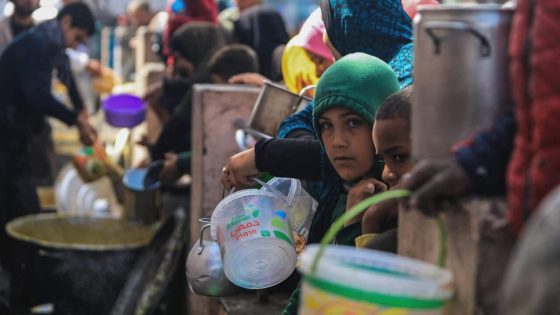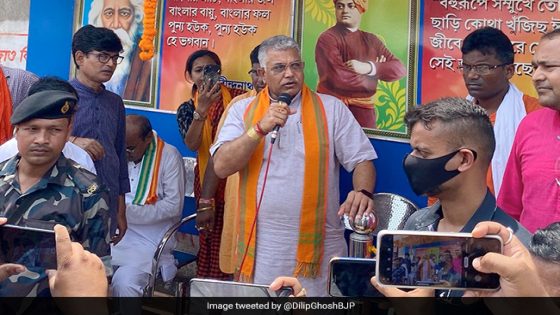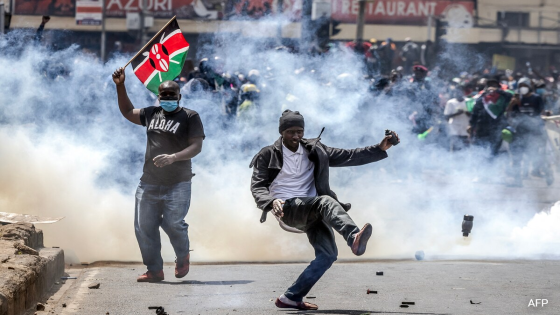The killing of seven humanitarian workers, including Australian Zomi Frankcom, by an Israeli airstrike in Gaza has sparked international condemnation and put a spotlight on international aid.
Prime Minister Anthony Albanese take place.
With several humanitarian organisations pausing their operations to protect their staff, what happens now for aid and people in Gaza?
How dangerous is Gaza for aid workers?
Gaza is “the most dangerous place in the world for humanitarian workers at the moment”, according to Marc Purcell, chief executive of the Australian Council for International Development (ACFID).
The seven World Central Kitchen (WCK) workers were leaving a warehouse in Deir al-Balah in vehicles branded with the charity’s logo when they were hit by an Israeli airstrike.
“Our whole aid community is grief-stricken by the tragic and unnecessary death of Zomi Frankcom and her colleagues,” Purcell said.
“It was a totally avoidable killing, and it’s reprehensible what has occurred.”
Israel’s military commander-in-chief Herzi Halevi said the strike “was not carried out with the intention of harming” the WCK workers.
, during a war, in very complex conditions,” he said on Wednesday.
Earlier, Israeli Prime Minister Benjamin Netanyahu described the incident as “tragic”, adding “this happens in wartime”.
The deaths take the number of humanitarian staff killed in the Hamas-Israel war since the Hamas attacks on 7 October to at least 206, according to the Humanitarian Outcomes’ Aid Worker Security Database.
Three workers died in Israel, while the other 203 were killed in Gaza.
“This is a systemic pattern against humanitarian workers,” Purcell said.
“It’s against all known norms of decency, but importantly it’s against the Geneva Conventions, which protect aid workers in conflicts.”
The Geneva Conventions require the “rapid and unimpeded passage” of humanitarian aid for civilians in need, the freedom of movement for humanitarian workers, and the protection of civilians (which includes humanitarian and medical workers).
Speaking last month, before the deaths of the WKC workers, US State Department spokesperson Matthew Miller said there were ongoing assessments of Israel’s compliance with international humanitarian law which had not considered them in breach.
“We have not found them to be in violation of international humanitarian law, either when it comes to the conduct of the war or when it comes to the provision of humanitarian assistance,” he added.
What protections should aid workers have?
The safety of aid workers in Gaza was reliant on “the close protocols and close cooperation” between them and the Israeli military, Purcell said.
“There is an intense level of communication that occurs on a daily basis as humanitarian workers try to provide assistance.”
At the time their convoy was hit, the WCK workers were in a “deconflicted” zone.
“The Israeli military knew everything about them,” Tim Costello, executive director of Micah Australia, which advocates for global justice, said.
“The warehouse had cleared it, they’d logged it, they’d checked.
“This should not have happened.”
United Nations spokesperson Stéphane Dujarric said it was clear the deconfliction mechanism “was not working properly”.
“The multiplicity of such events is the inevitable result of the way this war is being conducted,” he said on Tuesday.
“The message (to the Israeli government) is let humanitarian workers do their job. They need to be able to do it in safety.”
How have other aid organisations responded to the strike?
Several aid organisations, including WCK, have responded to the strike by pausing their operations in Gaza, saying the risk to their staff’s safety is too great.
Project HOPE, which runs health clinics in Deir al-Balah and Rafah and provides medical supplies and other aid to hospitals, is among them.
“We have paused all programming in Gaza for the next three days in solidarity and to reassess the security situation as we prioritise our staff members’ safety,” Project HOPE’s executive vice president Chris Skopec said in a statement on Tuesday.
Anera, which has provided an average of 150,000 meals daily in Gaza, millions of medical treatments, and thousands of other critical aid supplies since 7 October, is also temporarily suspending its work.
Purcell said it was the “right call” for humanitarian agencies to stop working when their safety was “at peril”.
What could pausing aid mean for the people of Gaza?
The people of Gaza are in the midst of a humanitarian crisis, with the UN repeatedly warning of a looming famine.
It’s also been vocal about the difficulties it’s faced getting aid into Gaza and distributing it.
“The UN really is the only show in town to deliver humanitarian assistance at scale to 2.3 million people that have no food,” Purcell said.
“The individual efforts of individual charities are critical, but now that they’ve ceased their operations … we do not think assistance can get through.”
He said the humanitarian system in Gaza had effectively “ground to a halt”.
“We think that aid is being deliberately denied to the civilian population of Gaza, and we think that people are at risk of starving to death.”
“The Australian government and its allies — the US, Britain, Canada — need to prevail upon the Israeli government to allow the UN to operate and for the charities that operate under the UN’s umbrella to operate safely.”
Israel has repeatedly denied accusations that it is hindering the distribution of food aid in Gaza, saying the problem is caused by international aid groups’ inability to get it to those in need.
On Friday, Israel announced it would through Gaza’a northern border.
The 7 October attack, in which 1,200 people were killed and more than 240 taken hostage, was a significant escalation in the long-standing conflict between Israel and Hamas.
More than 32,000 Palestinians have been killed in Israel’s ensuing military offensive in Gaza, according to the health ministry.
Additional reporting by Rania Yallop and Pablo Viñales




